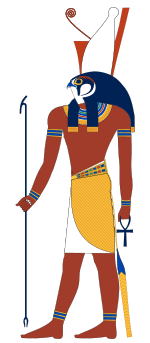Egyptian God Horus Facts
Egyptian God Horus Facts and Insights
Egyptian God Horus Facts
Horus, one of the most significant deities in ancient Egyptian mythology, is a symbol of power, protection, and kingship. Often depicted as a falcon or a man with a falcon's head, Horus holds a prominent place in Egypt's pantheon of gods. This blog post delves into the intriguing facts about Horus, his role in mythology, and his enduring legacy.
Origins and Mythology
Birth and Family
Horus was born to Isis and Osiris, two of the most important deities in Egyptian mythology. His birth was miraculous, as Isis conceived him after reassembling the dismembered body of Osiris, who had been killed by his brother Set. Horus's life was marked by his quest to avenge his father's death and reclaim the throne of Egypt.
The Battle with Set
One of the most famous stories involving Horus is his epic battle with Set, the god of chaos and disorder. This conflict symbolizes the eternal struggle between order and chaos. After a series of battles, Horus ultimately defeated Set, restoring harmony and justice to Egypt. This victory cemented Horus's status as a symbol of rightful kingship.
Symbolism and Attributes
The Eye of Horus
The Eye of Horus, also known as the "Wedjat," is a powerful symbol associated with protection, health, and restoration. According to myth, Horus lost his eye during his battle with Set, but it was later restored by the god Thoth. This symbol represents healing and the triumph of good over evil.
Falcon Imagery
Horus is frequently depicted as a falcon or a man with a falcon's head, symbolizing his role as a sky god. Falcons were revered in ancient Egypt for their keen eyesight and hunting prowess, attributes that were associated with Horus's vigilance and power.
Cultural Impact
Horus and the Pharaohs
Horus was closely linked to the pharaohs, who were considered his earthly representatives. The pharaohs were often depicted wearing the Double Crown of Upper and Lower Egypt, symbolizing Horus's rule over the unified land. This connection underscored the divine right of kings and the legitimacy of their rule.
Temples and Worship
Numerous temples were dedicated to Horus throughout Egypt, the most famous being the Temple of Edfu. This well-preserved temple provides valuable insights into the rituals and ceremonies associated with Horus worship. Pilgrims would visit these temples to seek protection, guidance, and blessings from the god.
Horus in Modern Culture
Influence on Art and Literature
Horus's imagery and stories have transcended ancient Egypt, influencing art, literature, and popular culture worldwide. His symbolism is often used in various forms of media to represent justice, protection, and victory.
The Eye of Horus in Modern Symbolism
The Eye of Horus continues to be a popular symbol in modern times, often used in jewelry and tattoos. It represents protection and good health, serving as a reminder of the enduring power of ancient Egyptian mythology.
Conclusion
Horus, the falcon-headed god, remains an enduring figure in Egyptian mythology, symbolizing power, protection, and kingship. His stories and symbols continue to captivate and inspire people across the globe. Whether you're interested in ancient history, mythology, or cultural symbolism, Horus offers a wealth of fascinating insights and timeless lessons.
Explore the legacy of Horus and discover how this ancient god continues to influence our world today.
- Egyptian God Horus Facts
- Eye of Horus Tattoo: A Symbol of Protection and Power - (sunpyramid-tours.com)
- The Temple of Horus in Edfu - sun pyramid tours (sunpyramid-tours.com)

Comments
Post a Comment